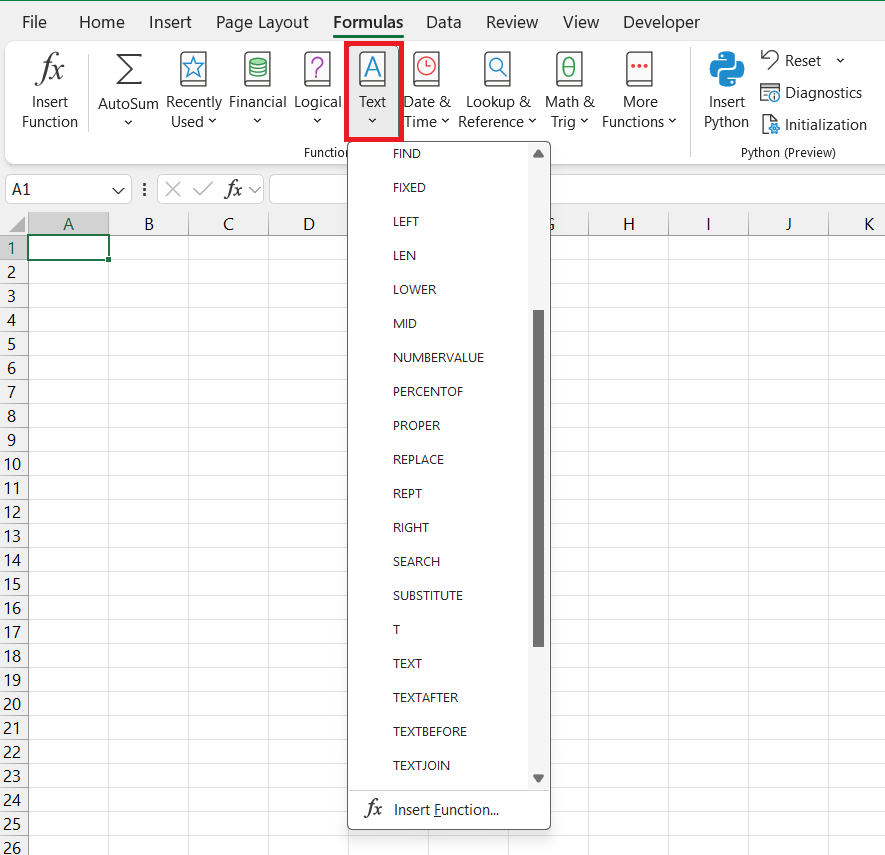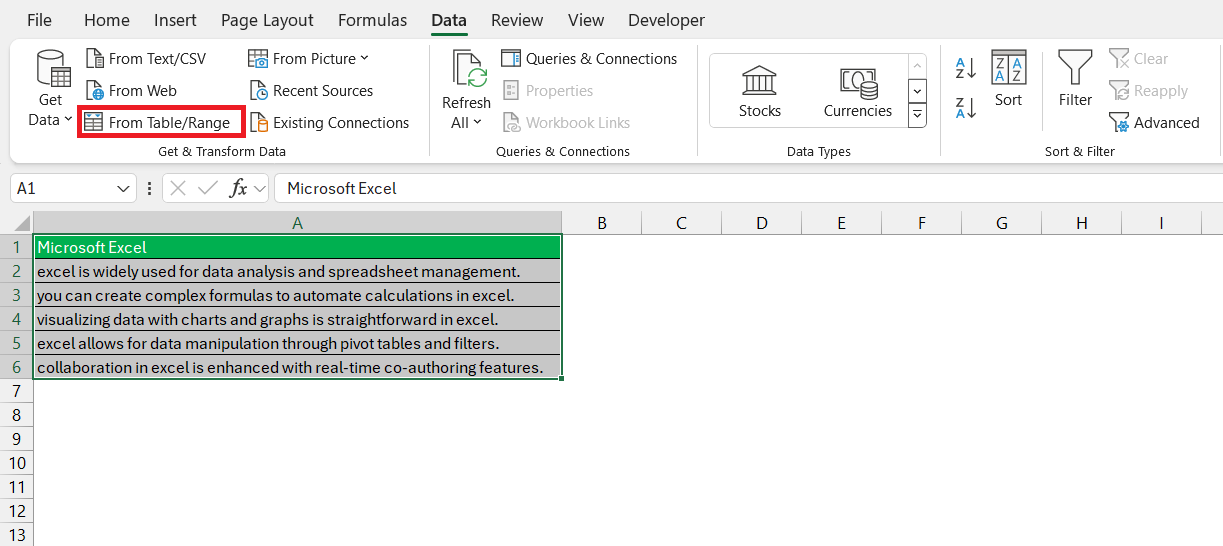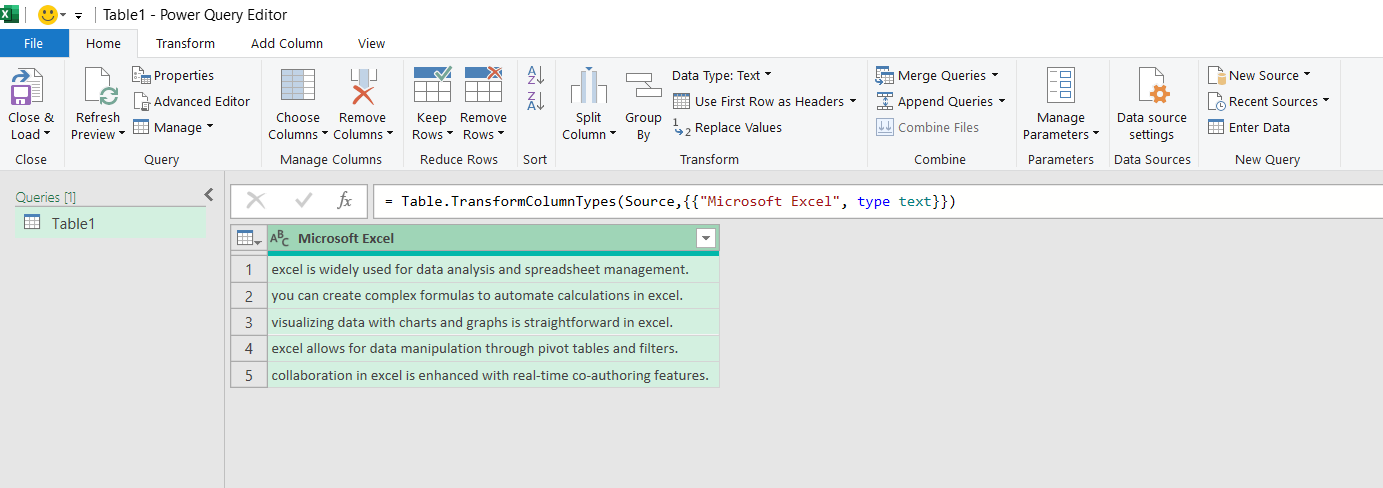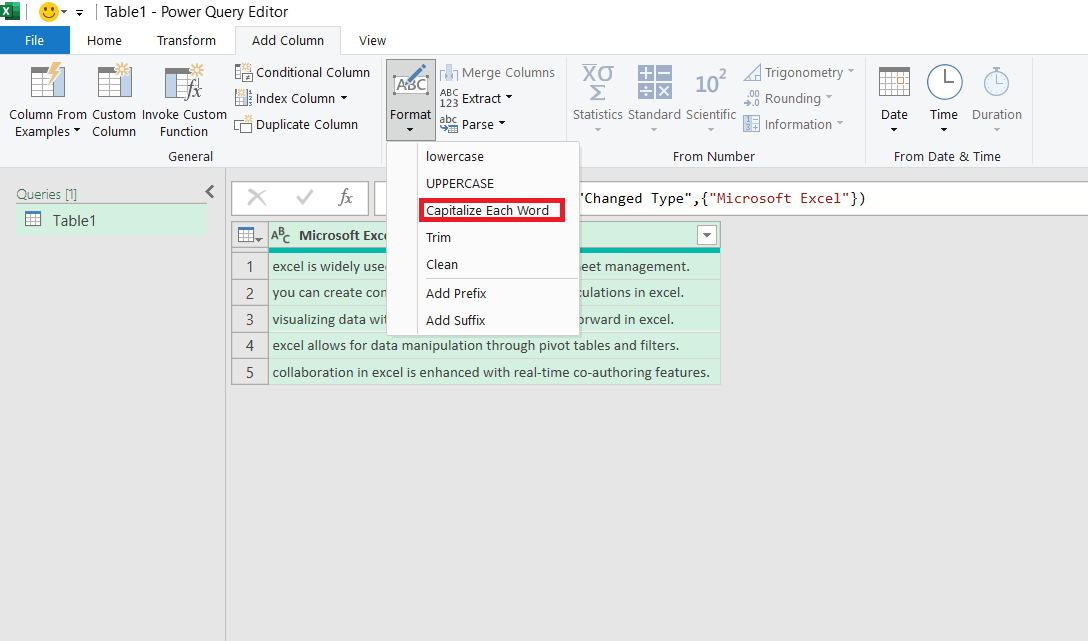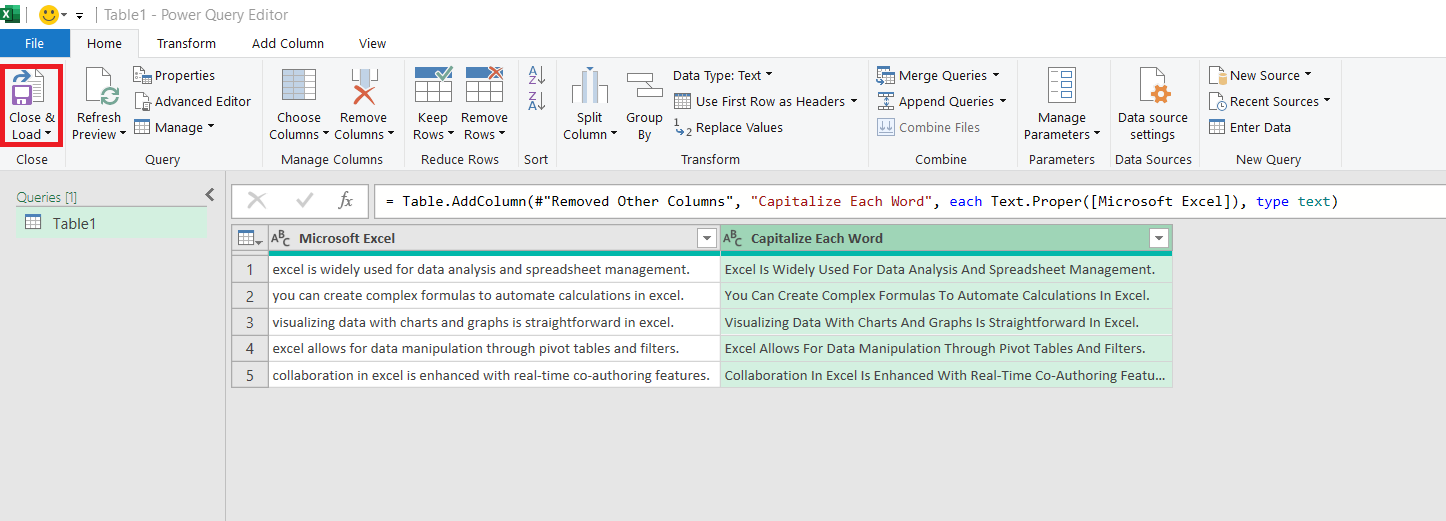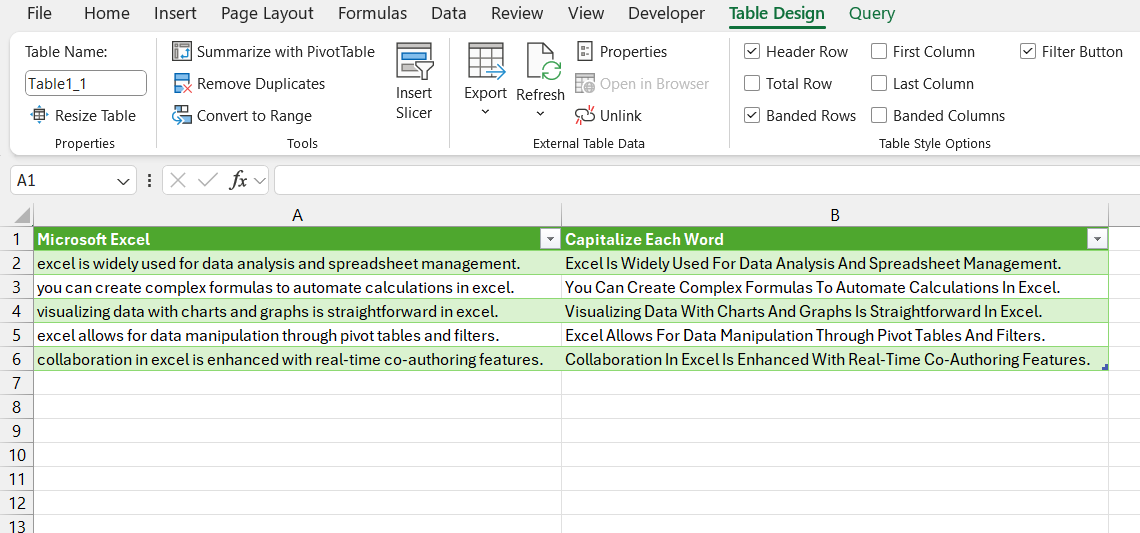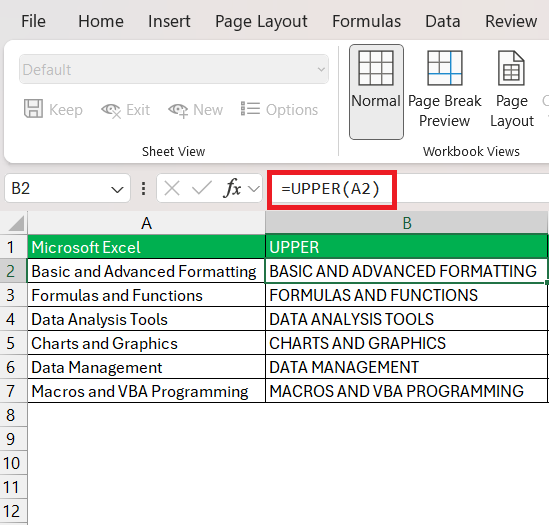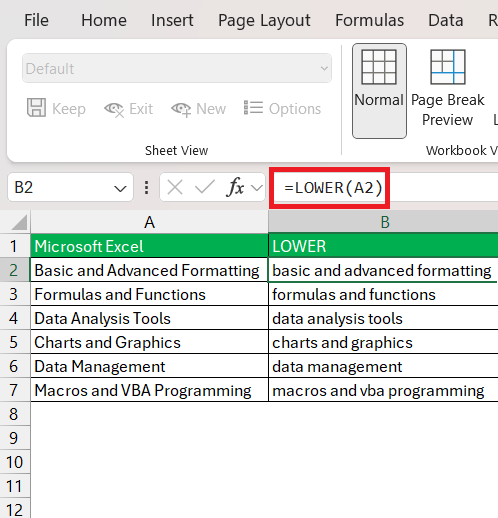In Microsoft Excel, ensuring your spreadsheets appear polished and professional extends beyond mere numerical data. Proper text formatting, especially capitalization, plays a crucial role in enhancing readability and projecting meticulousness, thereby improving the perception of your work.
Key Takeaways:
- Excel Functions to Capitalize First Letter: Utilize functions like UPPER, LOWER, PROPER, REPLACE, and LEFT for various text transformations.
- Formula for Initial Capitals: Combine =UPPER(LEFT(…)) with &RIGHT(…) to capitalize the first letter of each entry.
- Power Query Enhancements: Use Excel’s Power Query to efficiently format large datasets by capitalizing each word.
- Advanced Editing with VBA: Implement VBA macros to automate capitalization processes, ensuring consistency and saving time.
- Quick Fixes: For immediate needs, the UPPER, LOWER, and PROPER functions are indispensable tools for modifying text cases swiftly.
Table of Contents
Introduction to Capitalization in Excel
The Importance of Proper Text Formatting
Ensuring your Excel spreadsheets look polished and professional isn’t just about the numbers. The way you present your text matters too! Proper capitalization aids readability and shows attention to detail, enhancing the overall presentation of your data. It sets the tone for the quality of your work and can make a substantial difference in how others perceive your reports or analyses.
Overview of Excel’s Text Functions for Capitalization
Excel offers a suite of text functions specifically designed to manipulate string case – this includes changing all the text to uppercase, lowercase, proper case, or just simply capitalizing the first letter in a sentence or word. Handy functions such as UPPER, LOWER, and PROPER are the go-to tools for quick text transformations.
For detailed editing, functions like REPLACE and LEFT come into play. With these, you can fine-tune text data, like capitalizing just the first letter of each cell, and combine multiple functions to deal with complex text editing tasks.
Step-by-Step Techniques to Capitalize First Letters
Using Formulas to Make Initial Letters Uppercase
Sometimes you need Excel to emphasize only the first letter of each entry, making it uppercase. This can be done using a clever combination of functions. You can start by placing the first part of the formula =UPPER(LEFT(A2,1)) in a cell to convert the first letter to uppercase.
Add &RIGHT(A2,LEN(A2)-1) to attach the rest of the text.
Essentially, you’re splicing the first character, capitalizing it, and then rejoining it with the rest of the string. With the autofill feature, drag the formula down to apply it to other cells, easily converting the initial letters to uppercase across your spreadsheet.
The Power of Excel’s Power Query for Text Transformation
Discover the transformational ability of Excel’s Power Query when you’re confronted with hefty datasets that require uniform text formatting. An immensely powerful and user-friendly feature, Power Query makes capitalizing the first letter of each word not only efficient but almost effortless. Here’s how you can put it to use:
STEP 1: Access Power Query by clicking on the “Data” tab and selecting “From Table/Range” to open the Power Query Editor.
STEP 2: Pick the column in need of alteration and click the header to select the entire column.
STEP 3: Head over to the “Add Column” tab, select the “Format” drop-down menu, and choose “Capitalize Each Word.”
STEP 4: Preview your changes and once satisfied, click “Home” > “Close & Apply” to update your Excel workbook.
Your dataset now boasts a consistent and professional look with each word beginning with a capitalized letter, all without the drudgery of manual editing.
Advanced Text Manipulation with Excel Functions
Employing VBA Macros for Automated Text Editing
For those who frequently manage spreadsheets and need to streamline repetitive text editing tasks, VBA macros are a lifesaver. Through VBA, you automate the capitalization process, making it quick and consistent across your Excel workbooks.
To capitalize the first letter of the first word, use this VBA code:
Sub CapitalizeFirstLetter()
Dim rng As Range
Dim cell As Range
' Set the range you want to modify
On Error Resume Next
Set rng = Application.InputBox("Select the cells:", Type:=8)
On Error GoTo 0
If rng Is Nothing Then
MsgBox "No range selected! Exiting macro.", vbExclamation
Exit Sub
End If
' Loop through each cell in the selected range
For Each cell In rng
If cell.HasFormula = False Then ' Check if the cell does not contain a formula
cell.Value = Application.WorksheetFunction.Proper(cell.Value)
End If
Next cell
MsgBox "Transformation complete!", vbInformation
End Sub
And to capitalize the first letter and make the rest lowercase:
Sub CapitalizeFirstLetterOnly()
Dim rng As Range
Dim cell As Range
' Prompt user to select a range
On Error Resume Next
Set rng = Application.InputBox("Select the cells to capitalize:", Type:=8)
On Error GoTo 0
If rng Is Nothing Then
MsgBox "No range selected! Exiting macro.", vbExclamation
Exit Sub
End If
' Loop through each cell in the selected range
For Each cell In rng
If Not cell.HasFormula Then ' Skip cells with formulas
' Capitalize first letter and make others lowercase
cell.Value = UCase(Left(cell.Value, 1)) & LCase(Mid(cell.Value, 2))
End If
Next cell
MsgBox "First letters capitalized!", vbInformation
End Sub
Paste this code into a regular module in the VB Editor, and you’ll have an efficient tool at your disposal. You can even add the macro to the Quick Access Toolbar or create an add-in to utilize this function across all your Excel files, potentially saving you hours of work.
Tips and Tricks for Efficient Text Editing in Excel
Quick Fixes with UPPER, LOWER, and PROPER Functions
For those times you’re on a crunch and need to edit text cases swiftly, fall back on the trusty troika of Excel functions: UPPER, LOWER, and PROPER. They’re straightforward:
- Use
=UPPER(A2)when you want to transform all text in the cell to uppercase – perfect for acronyms or shouting out loud in text form.
- Apply
=LOWER(A2)to convert all text to lowercase – that’s ideal for creating uniformity or when case sensitivity could cause problems.
- Opt for
=PROPER(A2)when each word needs to start with a capital letter – think names, titles, and the start of fairy tales.
These three functions are your quick-fix toolbox for tidying up text and ensuring each cell is neatly formatted, hitting the mark for both readability and style.
FAQ: Excel Capitalization Queries Resolved
Q1: How do you capitalize the first letter?
To capitalize the first letter in Excel, use the formula =PROPER(A1) if you want to capitalize the first letter of each word or =UPPER(LEFT(A1,1))&LOWER(RIGHT(A1,LEN(A1)-1)) to capitalize just the first letter of the first word in cell A1.
Q2: How do I ensure consistent capitalization throughout my spreadsheet?
To ensure consistent capitalization throughout your spreadsheet, decide on a case standard and use Excel functions like UPPER, LOWER, or PROPER to apply it. Use Find and Replace for quick edits, or set up conditional formatting rules to highlight inconsistencies.
Q3: Can Excel automatically capitalize names and titles?
Yes, Excel can automatically capitalize names and titles using the PROPER function. Simply apply =PROPER(cell_reference) to each cell containing names or titles, and Excel will capitalize the first letter of each word for you.
Q4: Is there a way to auto capitalize in Excel?
Yes, Excel can auto capitalize using the Flash Fill feature, which predicts text patterns, or through formulas like PROPER and custom VBA macros for more complex needs.
Q5: How to get all uppercase characters from cell in excel?
To convert all characters in a cell to uppercase in Excel, use the UPPER function. Simply enter =UPPER(cell_reference) where cell_reference is the cell you want to change.
John Michaloudis is a former accountant and finance analyst at General Electric, a Microsoft MVP since 2020, an Amazon #1 bestselling author of 4 Microsoft Excel books and teacher of Microsoft Excel & Office over at his flagship MyExcelOnline Academy Online Course.

